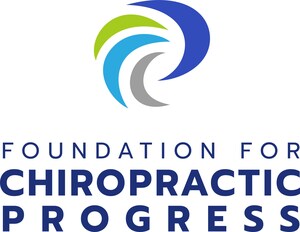
During Drug-Free Pain Management Awareness Month, Foundation for Chiropractic Progress Calls for Expanding Access to Effective Non-Pharmacologic Care
SAN JOSE, Calif., Sept. 1, 2022 /PRNewswire/ -- During National Drug-Free Pain Management Awareness Month in September, the Foundation for Chiropractic Progress (F4CP) cautions that although opioid prescriptions for noncancer pain are down by one-third in the U.S. since new federal guidelines were enacted, the growth of non-opioid painkiller prescriptions has increased, effectively trading one potentially risky drug for another.
F4CP, a nonprofit dedicated to informing and educating the general public about the value of chiropractic care, is a founding sponsor of National Drug-Free Pain Management Awareness Month, which occurs every September to raise awareness of safe solutions before opioids for neuromusculoskeletal pain.
According to a study published in June in JAMA Network Open, researchers found that the odds of prescribing a nonopioid pain medication started to significantly increase in 2016, which was the year that the Centers for Disease Control and Prevention (CDC) revised its prescribing guidelines to limit opioids for chronic, noncancer pain. Prescriptions for nonopioid painkillers, including non-steroidal anti-inflammatory drugs, analgesics or antipyretics, anticonvulsants and antidepressants increased by 8% in 2017 and 9.7% in 2018. During the study period, the number of opioid prescriptions decreased by nearly one-third.
"While it is encouraging that physicians are prescribing fewer opioids, simply replacing one drug with another is not the answer to safe, effective, long-term pain management," said Sherry McAllister, DC, president of F4CP. "Instead, patients suffering from acute or chronic pain should seek out natural, drug-free methods first to improve symptoms and quality of life without the risk of dangerous pharmacologic side effects or dependency."
The prescribing study did not include drugs from the benzodiazepine class, yet prescriptions for these drugs for pain-related complaints have also increased, according to a JAMA Open Network study published in 2019.
At the same time, drug overdose deaths increased a staggering 30% between 2019 and 2020, according to a report from the CDC, with increases involving benzodiazepines and all types of opioids, both prescribed and illicit. Overdose deaths involving prescription opioids alone nearly increased by five times from 1999 to 2020. Currently, an estimated 187 people a day die from opioid overdoses.
Mental Illness a Contributor
Mental health conditions, such as depression or anxiety, can exacerbate physical pain and increase the risk of overdose or death. What is concerning is that nearly half of U.S. adults (44%) report that they have experienced physical pain that they believe was worsened due to mental or emotional pain, according to the results of a Harris Poll conducted on behalf of F4CP and released in July.
The link between worsened physical pain and mental health is more common among younger poll participants. For example, the Harris Poll shows that more than half of 18-to-34-year-old (53%) and 35-to-44-year-old participants (61%) report they have experienced physical pain they believe was worsened by mental or emotional pain. Another disparity between participants is that 48% of women report worse physical pain due to mental or emotional pain compared to only 39% of men. Women ages 35 to 44 most often reported the link (69%) while men ages 65 and older least often reported greater physical pain due to mental or emotional pain (17%).
Expanding Access to Safe, Natural, Drug-Free Care
Neither physical pain nor mental health conditions should be managed in isolation. Due to their close association, a holistic approach to pain management is needed to better control symptoms. Pharmacological interventions, however, that offer only superficial relief and create potential mental or behavioral health problems, such as dependence, addiction and escalation, should be avoided.
Chiropractic care has been demonstrated to effectively manage physical pain while positively contributing to mental health. Symptoms of depression, for example, such as high cortisol, high adrenalin, insomnia, agitation and anxiety, can be attributed to over-activation of the sympathetic nervous system. After reviewing studies, researchers in 2020 determined that spinal manipulation, also known as a chiropractic adjustment, activates the parasympathetic system to counterbalance the activity of the sympathetic system and thus reduce depression symptoms. Stimulating the parasympathetic system is also considered an effective therapy for major depression as it releases neurotrophins essential for antidepressive therapies, including brain-derived neurotrophic factor and nerve growth factor, according to researchers.
In addition, patients who pursue chiropractic care first to manage their pain often use conservative, cost-effective approaches. In the journal, Spine, this year, researchers showed that Medicare beneficiaries with chronic low back pain who chose spinal manipulation first were 2.5-times less likely to increase their healthcare utilization – such as hospitalizations and surgery – as compared to those who received opioids.
Given these outcomes, F4CP urges doctors of chiropractic (DCs) to serve their communities by sharing educational resources and to build greater chiropractic awareness at the grassroots level. For example, DCs could contact their local legislative body (Board of Supervisor or City Council) to request a proclamation in their city/town/state to designate September as Drug-Free Pain Management Awareness Month.
"Choosing natural, drug-free care to manage pain benefits every healthcare stakeholder, but none more than patients," said Dr. McAllister. "For this reason and many others, we call on our doctors to urge government officials, health insurers and employers to explore opportunities to expand access to chiropractic and other evidence-based, non-pharmacologic care, not only in September, but in every month, every year."
A not-for-profit organization with nearly 32,000 members, the Foundation for Chiropractic Progress (F4CP) informs and educates the general public about the value of chiropractic care delivered by doctors of chiropractic (DC) and its role in drug-free pain management. Visit www.f4cp.org/findadoc; call 866-901-F4CP (3427).
SOURCE Foundation for Chiropractic Progress







Share this article